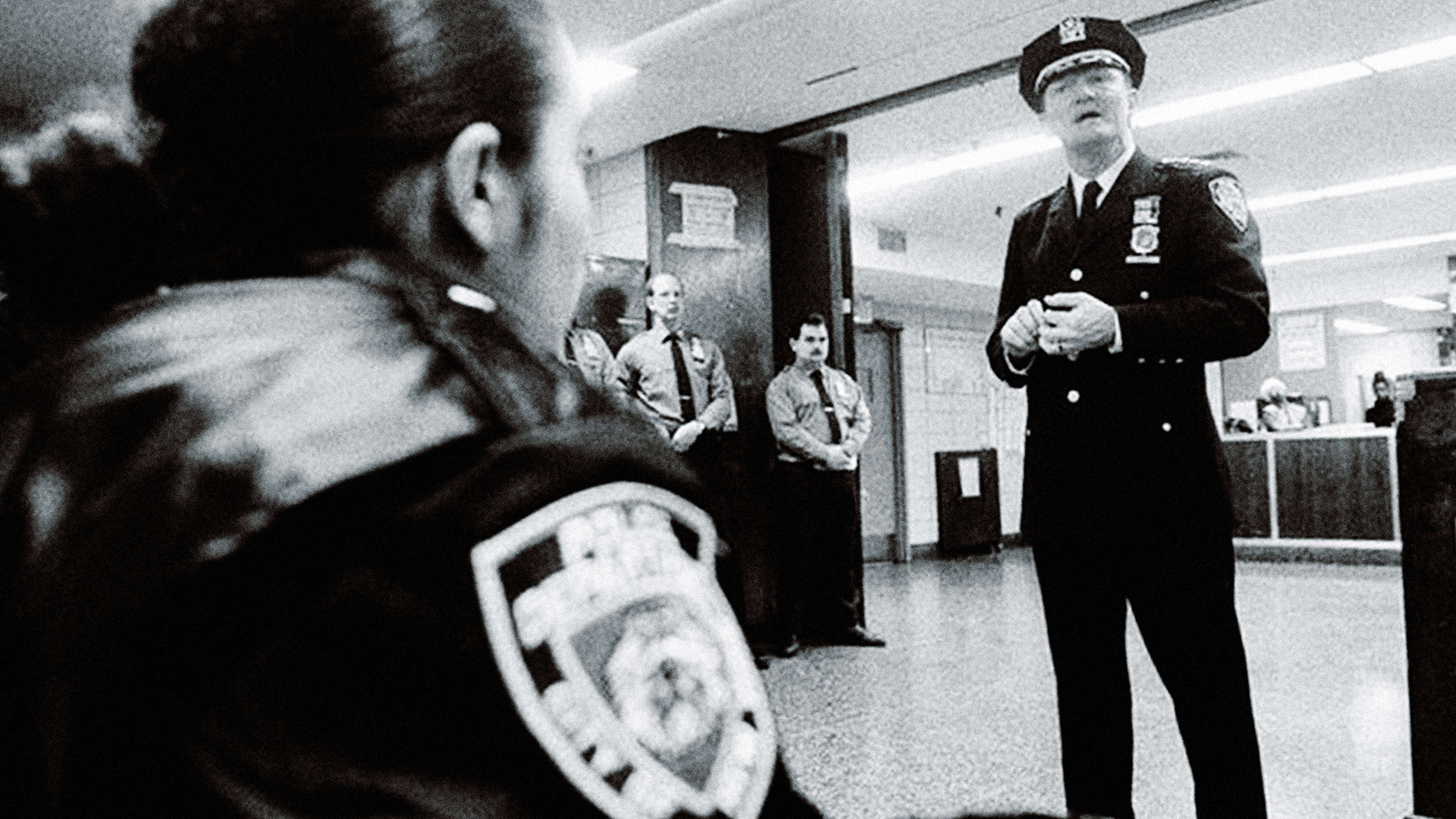The hard work of policing is done on our behalf, to serve and protect us, it’s often said. But we the people play a very small role in the way that that policing is conducted. That yields to the cops a power—to use force and surveil us—that is awesome and exceptional in modern democracy. This inconvenient truth is as alarming as it is nearly obvious, and it’s the basis of the book Unwarranted, an engaging tour of modern policing by constitutional scholar Barry Friedman. As he put it recently, “policing outran the structures and rules that we and the Founders created for it.”
The courts, which exist in a kind of symbiotic relationship with the cops, have proven to be poor checks on that power. Witness, for example, how in a single week last month, juries failed to convict three police officers in the shooting deaths of black men; because of a legal standard that defers to the judgement of a “reasonable officer,” or that requires that an officer “acted with malice,” very few prosecutions against police for deadly shootings end in convictions.
Deadly encounters and the videos that have documented some of them have led to public outrage, new calls for reform, and a re-dedication by many police departments to improve their training and their community relations. But suspicions on both sides of the blue line have festered. Attorney General Jeff Sessions, who has tied the increase in violent crime to a lack of respect for police officers, has nudged the Justice Department away from consent decrees, the formal reform agreements between the federal government and police departments that are overseen by a federal court, and left some feeling jittery about the future of reform.
But Friedman is an optimist. As director of the Policing Project at New York University, a group dedicated to public-police collaboration, his quest for “democratic policing” has included some promising steps forward: in cities like Camden, NJ, Tampa, Tucson, and Cleveland, the organization is building community advisory groups and working with youth and police to find common ground. In New York and Los Angeles, the project has also used citizen input to help departments design policies around the use of body cameras.
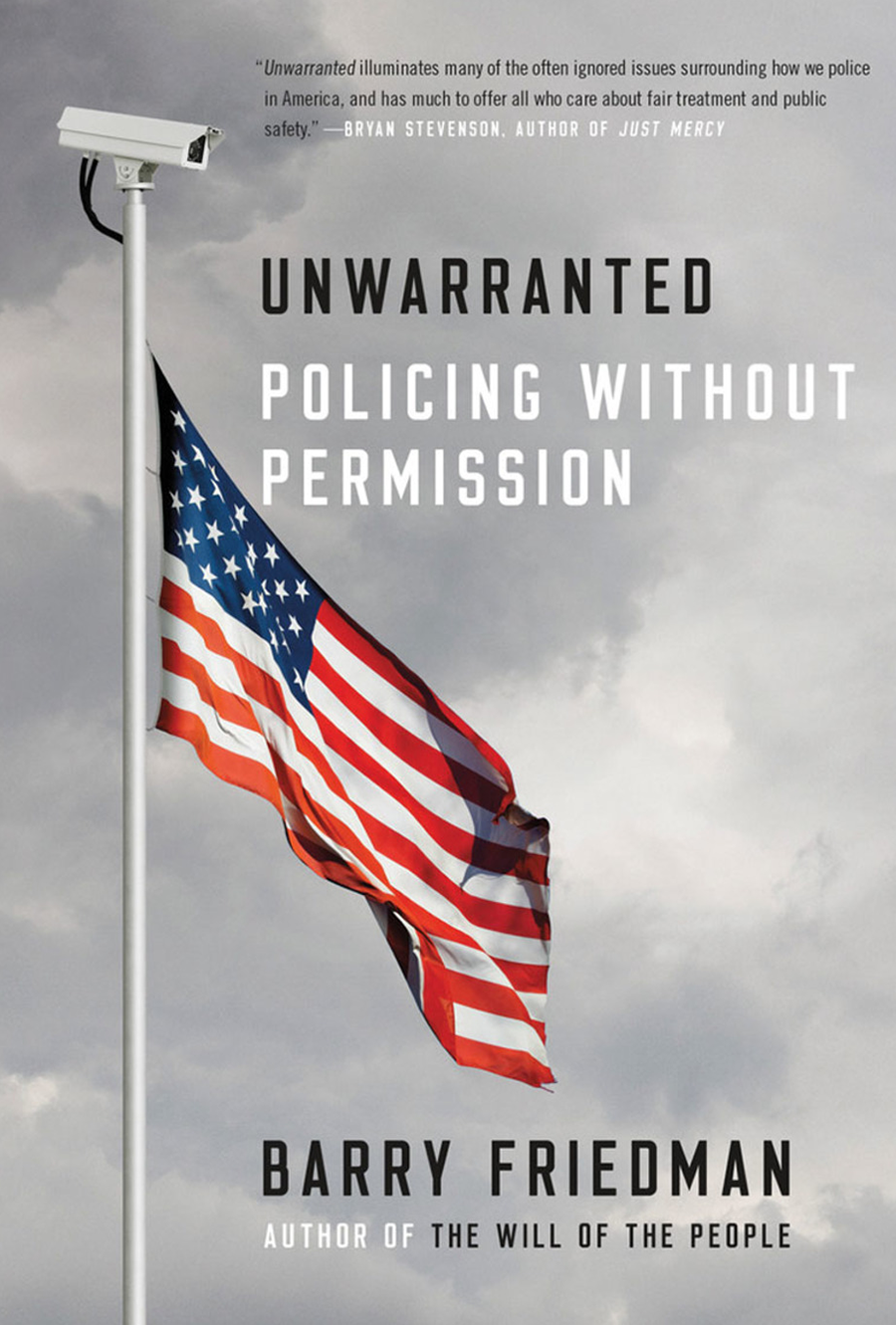
It was the stark lessons about government power unleashed by Edward Snowden—and, a year later, by Michael Brown, in Ferguson—that prompted Friedman to write about all of this. Those abuses and a steady stream of others—amplified by the viral spread of online video—have sowed distrust and fear among many communities. Black people are less than half as likely to trust the police as whites, according to a 2016 Pew Research Center survey. Asked if police treat racial and ethnic groups equally, 75% of white people said cops do a good or excellent job at this; only 35% of black people said so. When asked if police do a good or excellent job using the right amount of force during violent confrontations, the responses were similar.
If there is any accountability in policing now, it’s happening on “the backend,” says Friedman: body cameras, civilian review boards, inspectors general, judicial review. That kind of accountability is aimed at addressing problems after the fact. Friedman wants better rules on “the front end,” with police chiefs and the public collaborating on designing policies together, in order to prevent things from going wrong in the first place.
Real reform will need to come from within, but the onus is on the public to demand it, he argues. And We the People—and the courts and the legislatures—have not done enough. “People can’t just demand the police ‘reduce crime’ and then duck the question of how,” he writes.
Developing policies for tools like body cameras is a cornerstone of democratic policing, but as Friedman points out, there are more fundamental questions too, including: Do we even want this technology to begin with, and why? The same goes for a growing arsenal of gadgets, like license-plate readers, “Stingray” cellphone interceptors, facial recognition software, internet surveillance, and DNA evidence. Here, “the people, not the police, must decide as an initial matter if these things are in or out.”
So far, even when the public speaks, it’s not as audible as hoped. In New York, Friedman and the Policing Project solicited the opinions of tens of thousands of New Yorkers in creating recommendations for the city’s body camera program. But in its final policy, the NYPD decided not to accept some significant recommendations, such as limiting the ability of officers to view footage before filing a report on a use of force, one of many controversial questions surrounding cameras. “It’s hard to know how to feel about that,” says Friedman.
The police propensity for secrecy only makes it harder to know what is being done on our behalf, and what benefit that work is bringing. Even the concept of cost-benefit analysis—common to business and government work—remains rare in criminal justice and law enforcement. Honoring the hard-fought rights enshrined in the Constitution is one thing; but it can be hard to know if policing is even effective at its mission.
“No one expects perfection by the police,” says Friedman. “But are we even coming close?”
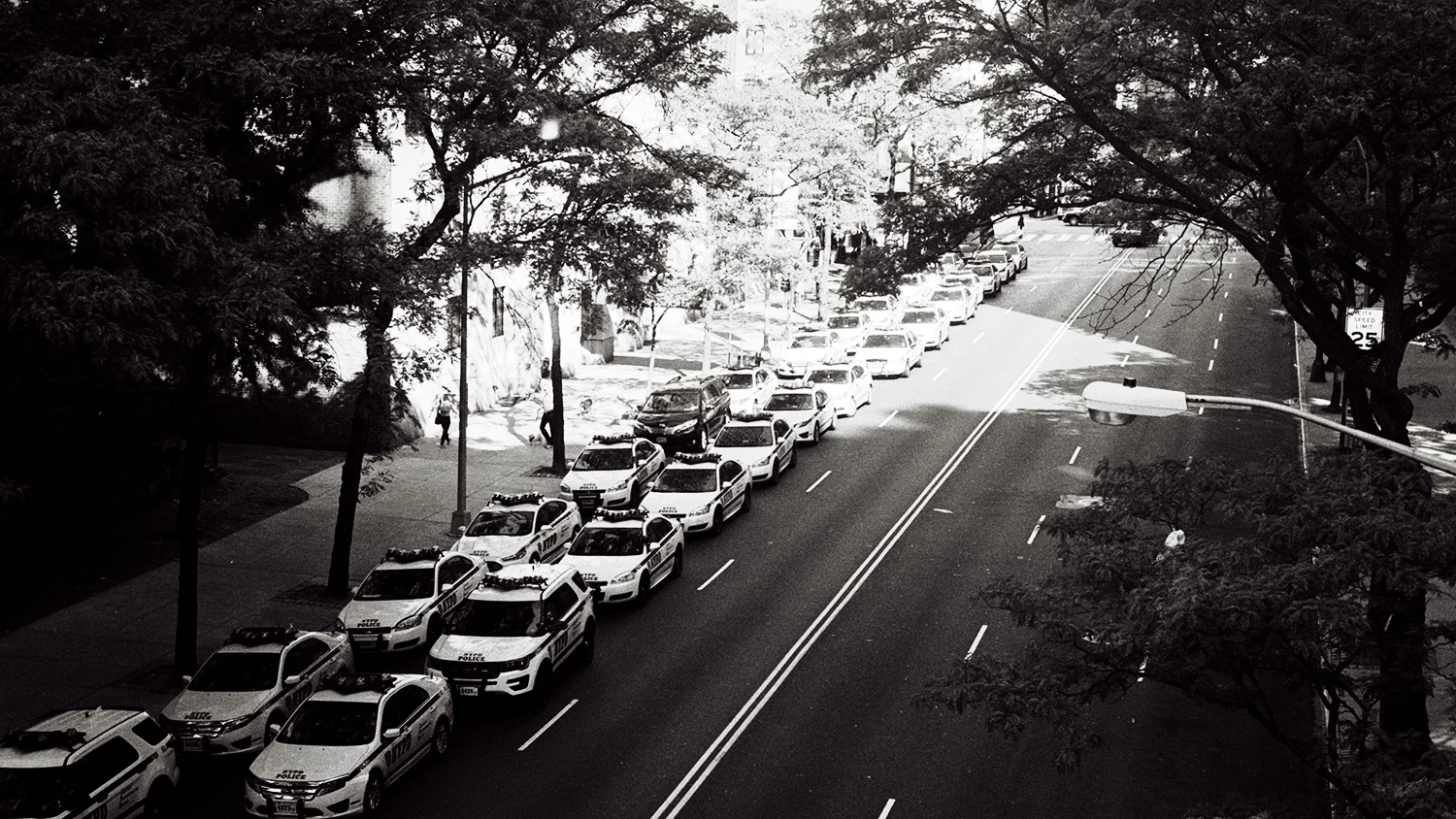
Same Constitution. Different Effects.
Fast Company: What’s a good example of how we get the relationship between the police and the public wrong?
BF: One of my favorite stories is the time that the Compton police got a surveillance plane. The company that was doing the surveillance, they get caught doing it. And then the police Public Information Officer explains, “people are worried about this kind of thing, so we decided to keep it hush hush.” Imagine another government official saying, “well, we knew this would bother you so we kept it secret.” I mean it’s such a great line, it’s hilarious. But it was honestly sad. Any other government official who said that would be looking for a job the next day.
It’s just a culture that we’ve created in this country of not inviting the public voice in law enforcement. It’s just never been the norm. When I finally realized it, it was just like a huge lightbulb that went off of in my head one day. I’ve wanted to write about policing for a long time. I taught criminal procedure for 30 years and it’s something I’m incredibly passionate about, as you can tell. But I’ve written about all kinds of other stuff: the Supreme Court, and public opinion courts, federalism. And then by happenstance I get assigned to teach in one semester constitutional law and criminal procedure.
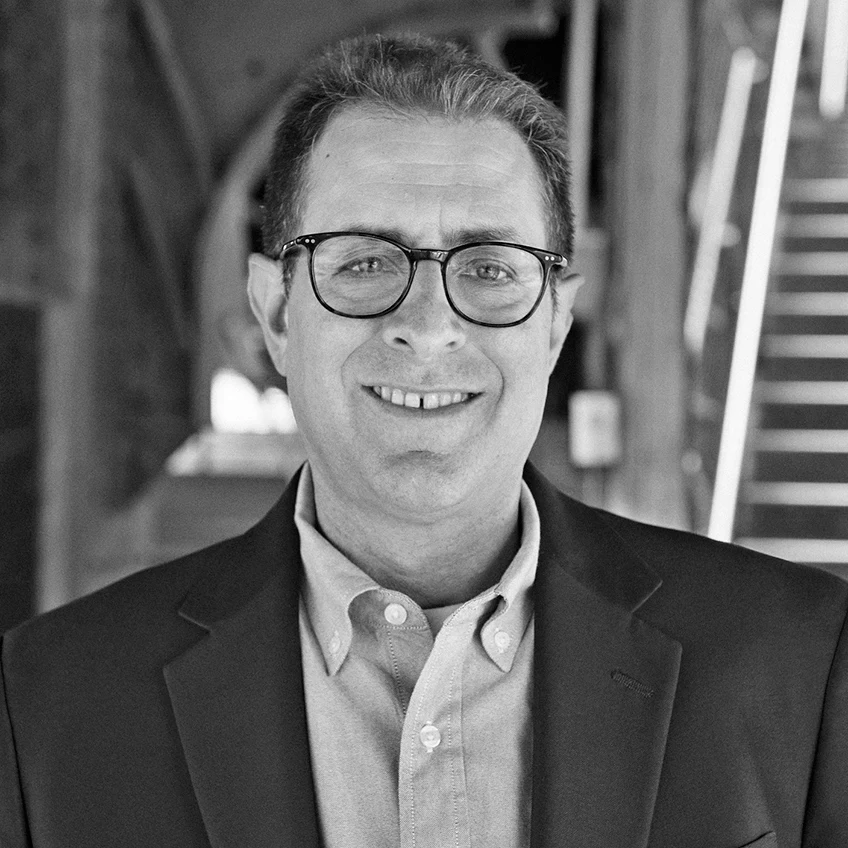
Constitutional law is the rules about how we run the government; criminal procedure is the rules about how we run policing. And I’m literally preparing for one class after the other, and all of a sudden I think, “Well, this is weird. Why don’t the rules that apply in my constitutional law class apply in my criminal procedures class?”
Same Constitution, same justices deciding the cases. But they talked about stuff differently. Everything they know about race in one context they toss out the window in the other context. And that’s what led to all of this.
FC: Is that when the Policing Project began?
BF: I had this thought to start the Policing Project right after Snowden. That was the impetus. I thought, “Oh my gosh, I’m an academic that has an idea that might apply in the world.” Because my head was like, “where’s the public participation?” I thought, “really? Really? You decided to collect the metadata on the whole country? And didn’t get permission? That’s nuts!”
And I actually don’t think all of that [surveillance] was good faith, but I like to believe that a lot of it was, about keeping us safe.
And then I went to the dean and we decided to start the Policing Project. And I was working on it, and then Ferguson happened. And then of course it was all off and running. And along the way—I’m an old litigator, so, you know, like a carpenter when everything everything’s a nail, what do you do if you have an issue? Litigate it.
But then I was talking to my dear friend and colleague Ann Milgram, who at the time was the vice president of criminal justice programs at the Arnold Foundation. And she listened to the idea and said, “you really need to work with law enforcement.” And I thought, “I don’t know if they want to talk to me.”
But she helped facilitate a founding conference for the Policing Project [in November 2015] that was a closed-door session with law enforcement. And we did PowerPoints and had group discussions. They asked us to write a set of democratic policing principles for them and then they all signed on to it. And since then major city chiefs have signed on to it, and PERF [The Police Executive Research Forum] has signed on to it, and NACOLE [The National Association Of Civilian Oversight of Law Enforcement] has signed on.
FC: How did that first meeting go? How did the police respond to your ideas?
BF: I remember sitting there—the first session was about, how do we get the community engaged? The second session was about cost-benefit analysis, and then we all had a good night together. And then the next morning we got there, and it was like, “it’s time to talk about this democratic thing!”
And we did a PowerPoint, and there was silence in the room. And then you know someone—I’m not going to identify who, because it was no attribution—says, “that seems right to me.” And from there, the conversation just ran, and ran really fast, and it ran so fast that we ended up working with a bunch of police departments.
When you sit down with the police, many if not most of them are right-minded people and some of them are just flat-out inspiring. It’s like the military: If you go talk to a lot of people who are in or have been in the military, they get the democracy thing. They’re inculcated with it. They get it and they’re interested. And it’s a change for them. I have this text message somewhere from Jim Bueermann, the president of the Police Foundation [an independent nonprofit dedicated to policing, and former chief in Redlands, CA]. He wrote me, “Every person over 18 in every place in America every mayor or whatever, police official, should read this book.”
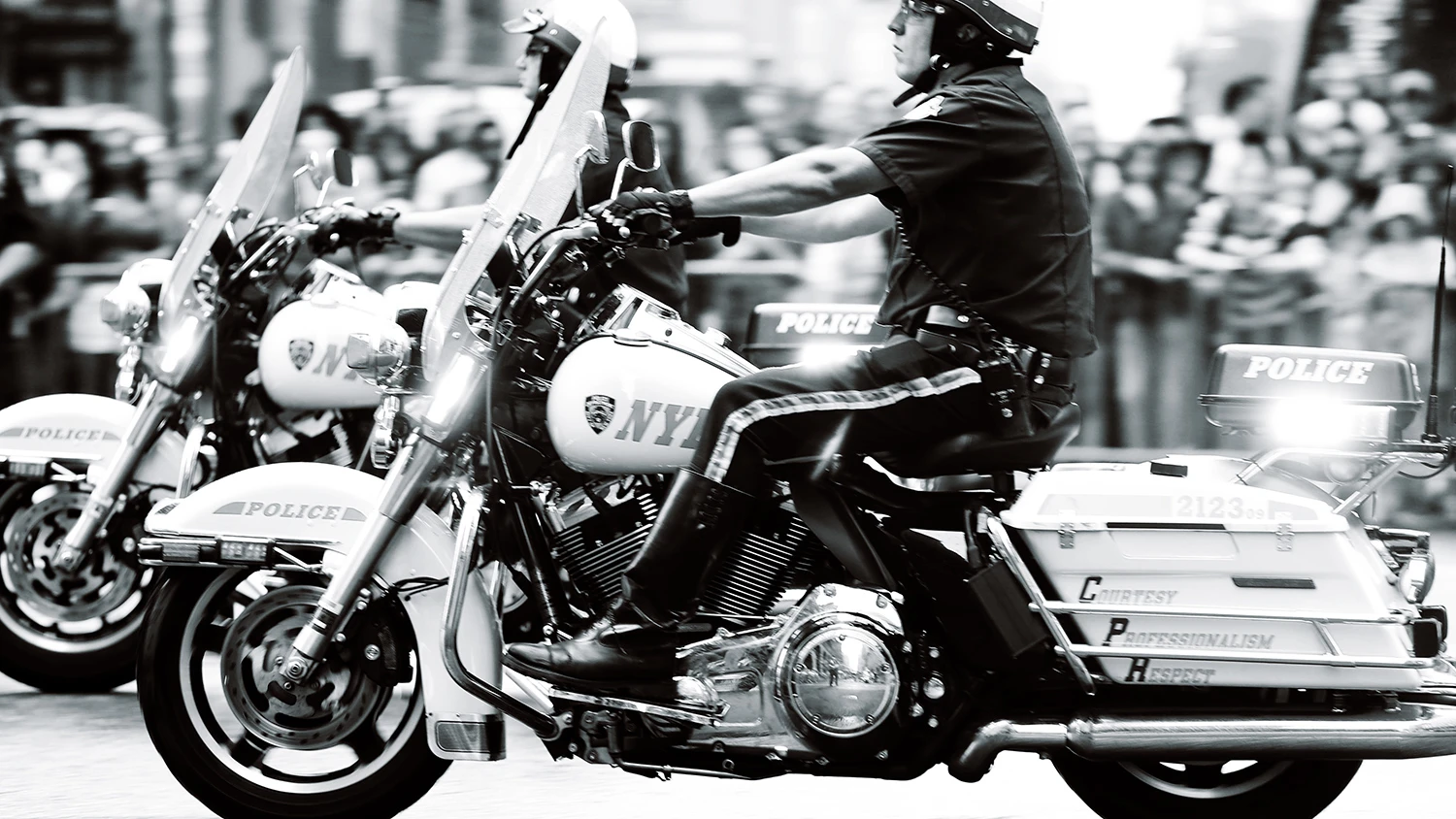
False Choices
FC: After spending time with police chiefs, police officers, and the public, what’s the role of trust in improving policing?
BF: The role of trust is immense. And helping justifiable trust to exist is a lot of what the Policing Project is about.
There’s an anecdote in my book about the police use of red light cameras and drones and public involvement in Menlo Park, California. In that case, there’s legislation that’s going to limit the use of data, and the police chief takes umbrage and says, “You know, you don’t trust us.” And the city council responds, “Actually, we do trust you. That’s why we gave you all that stuff. But it’d be remiss of us not to be involved in deciding what happens with it.” And so, you know, trust is a shared thing.
If the framers of the Constitution were here, or the authors of the Federalist Papers, they would say, “You should never trust government completely. You always have to keep a watchful eye.” And I think that’s true.
But there’s been shattered trust in many communities in which we’re dealing. I mean it’s stunning, it’s really stunning, to be sitting in these rooms of community members and realize how shattered the trust is at times. I mean, it’s actually kind of heartbreaking.
FC: Is it hard to get to that shared trust when policing or security is cast as a choice between two things, like, say, safer streets and civil rights?
BF: This is the thing I think everybody misses—we live in a society where everybody wants to fight it out. Like, “I’m for privacy.” “No—I’m for security.” It’s like, ordinary human beings aren’t walking around being for privacy but against security, or for security and against privacy. We all want to lead private lives safely.
And so something is sort of fundamentally broken in our discourse. And that’s what we’re trying to do: to get people to understand that, if they’ll sit down and talk to each other, they share a similar set of values, and that what they’re really facing are collective societal problems that are hard. And if we work together we can try to crack them.
FC: I think of Snowden’s revelations about government surveillance as the last time society grappled with privacy in a sizable way. Does it take an event like that to spark public conversation about civil rights and government overreach? Or can we find other ways to provoke that conversation?
BF: When the public is engaged, policy changes, but the public’s busy. And it’s hard to keep something salient for the public mind. And so the challenge is, how to force front-end accountability when it’s not salient in the public mind. In part because, if you stop and think about it, we have a really good record on making bad decisions in emergencies, when things are too salient. You know, decisions that get made in a panic aren’t always the right decision. What you want is kind of an ongoing, thoughtful process.
On privacy, polling is all over the map on this stuff, and it’s because how questions get asked of people about their privacy varies. But it is absolutely true that the public doesn’t understand the stakes, and they also feel like they don’t have control.
There’s a kind of sweeping past—the “what can I really do about this?” attitude. I sit at dinner parties all the time and somebody says to me, “yeah, yeah I don’t have anything to hide,” and I say, I want the last two days of your email. And everybody, once they actually stop and think about their emails over the last few days, talking about the fact that “I’m constipated,” or whatever it is. And so everybody wants privacy.
I think it’s wrong to say people feel like they’ve given up their privacy and they just don’t care. They’re actually mad about it, a lot of people. They don’t think they have a choice. And we’ve done an inadequate job as a society in part because this gets fought out in such tendentious terms, rather than letting people understand that there may be choice.
I just think we’ve had a very starved discourse about this. But people aren’t going to care on a regular basis. What we need to do is get them to understand that there are choices, and to be demanding of their representatives that there be more serious conversation about this issue.
It’s because we have framed this from time immemorial as a fight between privacy and security. There’s something about the structure of American discourse that’s binary. But good solutions are never binary. That’s what makes them good. And we have to actually just become convinced that instead of fighting about this stuff, the charge to the people that represent us is to sit down and figure out a way to try to do both of these things.
The Future Of “Law And Order”
FC: From your perspective, what is the general policing climate like now given the “law and order” signals sent by the new administration and by Attorney General Sessions? [He recently reasserted policies of civil asset forfeiture, permitting state and local police to take cash and property from crime suspects, even without a criminal charge.] How is that affecting the way police are seeing their jobs and their relationship with the public?
BF: The International Association For Chiefs of Police issued a statement on immigration enforcement, and their position is that we should care about immigration, but we also have to care about sanctioning cities that aren’t seen to be cooperating. Lots of police departments have spoken up all over the country saying, “we were working really hard to develop trust in our communities and then [immigration] agents wearing raid jackets that say ‘POLICE’ on them are pulling people out of houses, and that’s just destroying that trust.”
Balance is really important and we often aren’t. Instead, what we do is pendulum swing. The administration’s the beneficiary of a swing of the pendulum. But what I would urge is to try to find that resting place, because, again, there’s been a lot of talk out of the Justice Department about safety and crime. But we all want to be safe; the people of Chicago suffering violence in their neighborhoods really want to be safe. They would welcome support. But they also want to have a voice in how they’re policed to achieve that safety.
Related: How The Lucrative Fight To Put Cameras On Cops Is Changing The Way Police Work
FC: Speaking of Chicago, that city’s police department uses what’s called the Strategic Subject List, which crunches data to predict who’s likely to be shot. Other technologies like social-media tracking and facial recognition are proliferating. What do these tools mean for police work? And what do you make of the concerns that have been raised about the ways in which these technologies can serve to re-inscribe racial bias?
BF: A lot of these technologies, just because of how and where they are deployed—if you’re using license plate readers and you’re using them on patrol cars that are in more heavily policed neighborhoods, then you’re picking up cars in those neighborhoods more. And so that’s something we need to be very aware of and thoughtful about. As my dear colleague Brian Stevenson often says, if you’re worried about marijuana enforcement, go police some university dormitories.
Imagine the world where the cops are going down the street and everything is happening in real time and they’ve got Google Glass on, or there are body cameras that instantly recognize the people—it’s not just recognizing them but we’re getting their security scores coming up at the same time. People are getting colored by how dangerous the algorithms think they are. That’s one darn scary world.
We worry about false positives—getting the wrong people. But whoa: do we all want to be in [a database] like that? The one thing I can’t say, sadly, enough—well, you know what I’m about to say: if we’re going there, we better all go there together. Like, now.
I get that there are minority rights questions and things to worry about there that are super serious. But you don’t even get to those questions until the point that you first say, “whoa did we all discuss this and agree to this?” And my instinct is, most of the time, we don’t get there.
FC: Do you think it’s a foregone conclusion that this kind of technology will take root in policing?
BF: It is a foregone conclusion unless we start to force public engagement around all of it. It’s what we saw around San Bernardino and encryption, which is that when the companies realize that there is a demand for the public-facing security part of it, the privacy part of it, the companies will be driven to accommodate that. It’s not like everything is going to be fine. There are hard questions. But you know, it’s rare that we want to answer a hard question by just saying yes or no.
As you might guess from the work, I’m fundamentally an optimistic person, and I like to believe things are possible. I wrote this article called “Democratic Policing” with Maria Ponoromenko that was kind of a wonky version of the first part of the book. I remember sitting in my office with her and saying, “If you told me when we were writing the article that a year later that we would be conducting the the public-facing version of notice and comment for the largest police force in the country, I’d have laughed you out of here. But we’re doing that right now!”
What is gratifying too is the number of people on every side of this issue who, once you talk with them about it and offer them a way forward— including, and I just want to stress, law enforcement, because they need it, they know that there’s an issue even if they don’t want to concede it, but they know there’s an issue—and if you offer them a way to acknowledge it that’s positive, as opposed to being shouted at, they’re happy to give it a try.
FC: I wonder how the public’s perception of policing will evolve along with the spread of officer-worn video. It makes me think of the show Cops, just on a bigger, uglier scale. There’s just going to be a lot more of that footage out there and it’s already changing the public’s understanding of the police, one way or the other.
BF: I think that goes back to the fundamental point of our conversation, which is, we ask the police to keep us safe, and do not get very involved in how that happens. And as one police chief said to me, and as many police will tell you, policing is often a violent business. And that is sometimes the nature of the job. And yet the public doesn’t watch it very often, and it would be interesting to see how the public reacts. One shouldn’t presume to know what that reaction will be.
On the one hand, cops do lots of stuff every day that none of us would want to. If I’ve learned anything from riding in police cars, it’s that I can never be a cop. I’m not up to it, and I respect the people who do it. On the other hand, there’s things involved with policing that trouble people when they see it. So the good news is, we may all get forced to do the job we should have been doing all along, which is weighing in on, “how can this happen?”
Recognize your brand’s excellence by applying to this year’s Brands That Matter Awards before the early-rate deadline, May 3.
